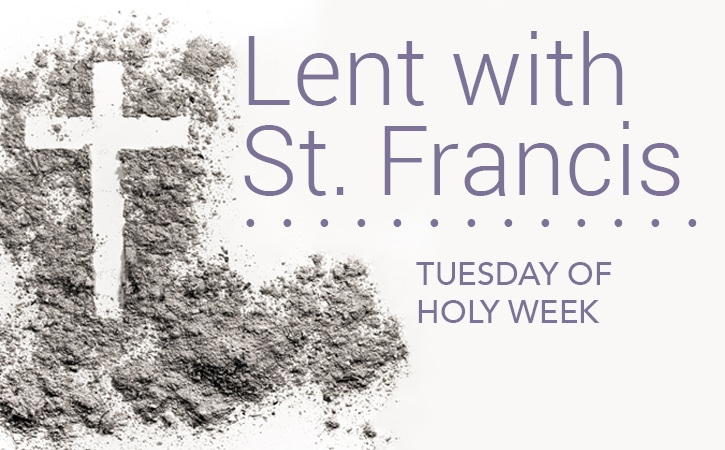Tuesday of Holy Week
Isaiah 49:1–6;
Psalm 71:1–2, 3–4a, 5–6ab, 15, 17;
John 13:21–33, 36–38
“Very truly, I tell you, one of you will betray me.” —John 13:21
In John’s Gospel, Jesus knows what is happening at all times. The events are part of a greater plan. He knows that he will be betrayed and he knows who his betrayer is. Yesterday we heard Judas challenge him over the jar of ointment used to anoint him. Today Jesus tells Judas to be about his errand. In both instances, John reminds his readers that Judas was the keeper of the community’s money.
We have seen throughout the accounts of St. Francis’s life and woven into his writings a deep distrust of money. He made it a part of the rule of life for his companions that they not handle money, that they treat it with contempt, that they regard it as having little more value than dust or dung. While this might seem extreme to us today, we can also see the way the Gospels also suggest that there is something about money that turns people from the good. Judas, we are told elsewhere, agrees to betray Jesus for thirty pieces of silver, money he later flings back at the temple priests. And Jesus himself drives the moneychangers from the temple.
In this holiest of weeks, we are challenged more than ever to think about our own relationship with money and material goods. Are we in danger of letting it come between ourselves and our God or ourselves and our loved ones? Money questions can ruin relationships, inner peace, spiritual well-being. We like to think we can separate our finances and our prayer lives. Jesus and Francis remind us that we can’t, that we have to wrestle with these questions again and again. Is that where our confrontation with the cross hits home?
Prayer
Lady Holy Love, God keep you,
with your sister, holy Obedience.
Amen.








